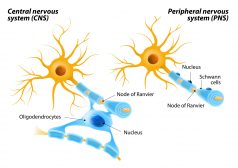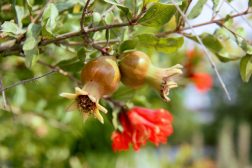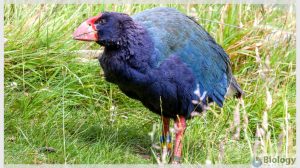Definition
noun
An active immunity acquired by experiencing and having recovered from a disease.
Supplement
Active immunity involves the production of antibodies (by B lymphocytes) and cell-mediated response (with T lymphocytes). It renders relatively longer immunity (compared to passive immunity). Active immunity may be natural or artificial.
This type of active immunity is said to be natural because the immunity is induced not by deliberate exposure (such as vaccination). The individual has developed immunity to a live pathogen by having been exposed to it and by developing a primary immune response that led to immunological memory.
Compare: artificial active immunity
See also: active immunity
Dictionary > Natural active immunity
You will also like...

The Central Nervous System
Myelin sheath is essential for a faster conductivity of signals. Know more about this feature of some neurons in the Cen..

Still Water Community Plants
This tutorial looks at the adaptations of freshwater plants for them to thrive in still water habitats. Familiarize your..

Fruits, Flowers, and Seeds
This tutorial deals with the structure and function of flowers, fruits, and seeds. Also included here are the types of f..

Ecosystem Succession
If the balance of nature is left untouched, landscapes can change dramatically over time. A previous ecosystem is supers..

Genetic Information and Protein Synthesis
Genes are expressed through the process of protein synthesis. This elaborate tutorial provides an in-depth review of the..

Takahē (Porphyrio hochstetteri)
Meet the colorful takahē, an extremely rare flightless bird. Find out more about its unique features and why they matte..

